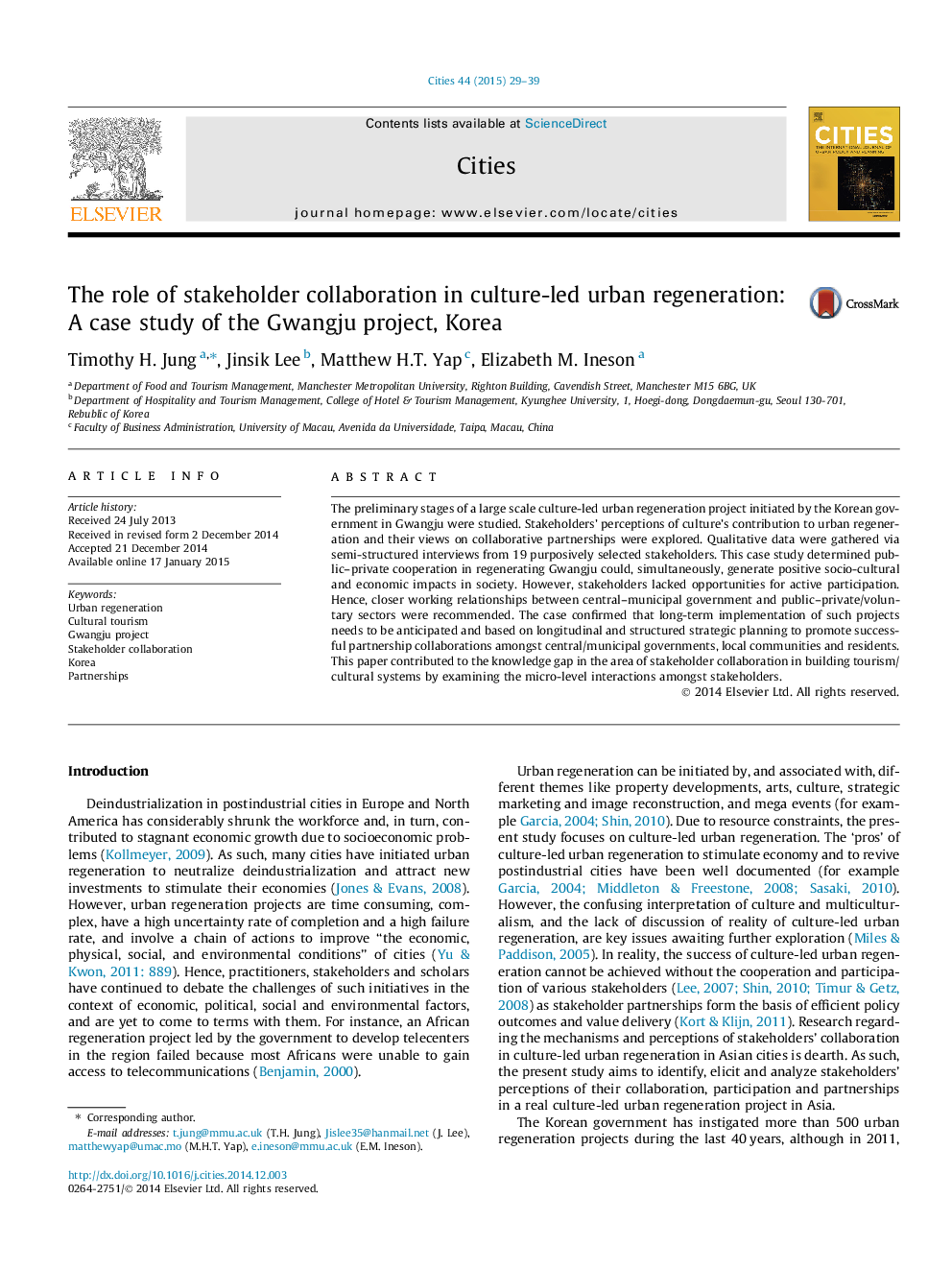| Article ID | Journal | Published Year | Pages | File Type |
|---|---|---|---|---|
| 1008312 | Cities | 2015 | 11 Pages |
•Studies the perceptions of stakeholders in a culture-led urban regeneration project.•Explores culture’s contribution to urban regeneration.•Stakeholders perceive public–private partnerships are critical success factors.•Stakeholders maintain that collaborative partnerships make socio-cultural impacts.•Stakeholders recognize that collaborative partnerships offer economic benefits.
The preliminary stages of a large scale culture-led urban regeneration project initiated by the Korean government in Gwangju were studied. Stakeholders’ perceptions of culture’s contribution to urban regeneration and their views on collaborative partnerships were explored. Qualitative data were gathered via semi-structured interviews from 19 purposively selected stakeholders. This case study determined public–private cooperation in regenerating Gwangju could, simultaneously, generate positive socio-cultural and economic impacts in society. However, stakeholders lacked opportunities for active participation. Hence, closer working relationships between central–municipal government and public–private/voluntary sectors were recommended. The case confirmed that long-term implementation of such projects needs to be anticipated and based on longitudinal and structured strategic planning to promote successful partnership collaborations amongst central/municipal governments, local communities and residents. This paper contributed to the knowledge gap in the area of stakeholder collaboration in building tourism/cultural systems by examining the micro-level interactions amongst stakeholders.
